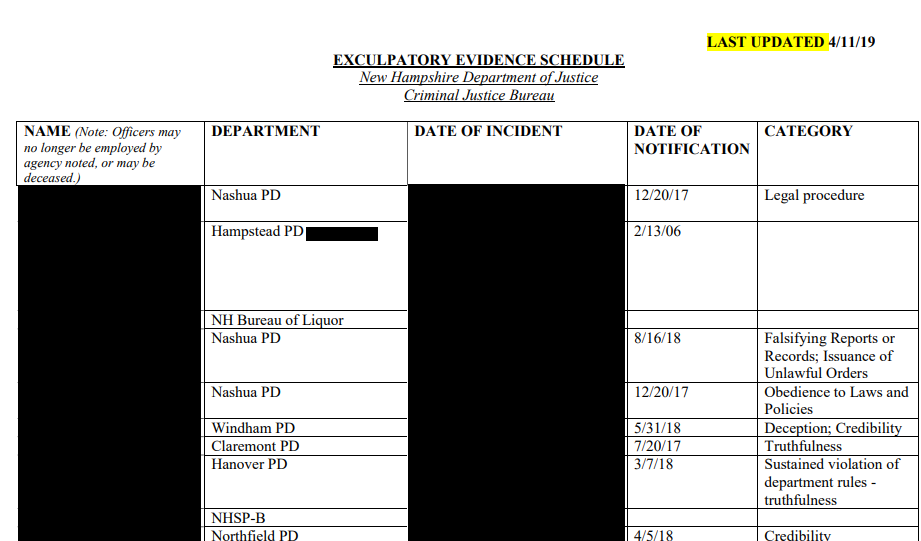Attorney General Gordon MacDonald will appeal to the state Supreme Court to keep secret the names of 264 law enforcement personnel with sustained discipline that negatively reflects on their truthfulness, according to a stipulation filed Tuesday.
The agreement was reached between MacDonald and the ACLU-NH along with media outlets seeking to make Judge Charles Temple’s ruling on the state’s motion to dismiss the final document to end the case. Temple hasn’t yet ruled on the motion.
Judge Temple ruled April 23 that the Laurie List of police with credibility issues is not confidential, but Solicitor General Daniel E. Will declined to release an unredacted copy saying the order wasn’t final. It is now called the Exculpatory Evidence Schedule.
The New Hampshire Center for Public Interest Journalism, which publishes InDepthNH.org, is the named plaintiff in the public records lawsuit seeking to make the names public.
Six other media outlets across the state are also named: Concord Monitor, Keene Sentinel, Nashua Telegraph, Seacoast Media Group, Union Leader and Valley News.
“The stipulation reflects the parties’ agreement, in light of this Court’s order on the defendant’s motion to dismiss, to bring this litigation to a prompt resolution,” the stipulation states.
After Temple’s April 23 ruling, InDepthNH.org reported that seven new entries were added to the secretive list of dishonest law enforcement officers and two removed between January and April, according to Senior Assistant Attorney General Geoffrey Ward.
Ward refused to release the most recent unredacted EES dated April 11.
Prosecutors have the constitutional obligation to disclose to a criminal defendant potentially exculpatory evidence, that is evidence favorable to a defendant even if it involves discipline buried in a police officer’s confidential personnel file.
Actions that might cause an officer to be placed on the list include a deliberate lie during a court case, the falsification of records or evidence, any criminal conduct, and an egregious dereliction of duty.
ACLU-NH’s Gilles Bissonnette and attorneys Gregory Sullivan and William Chapman argued the list must be made public in its entirety to hold government officials accountable. Solicitor General Will argued that the law requires the names be confidential.





